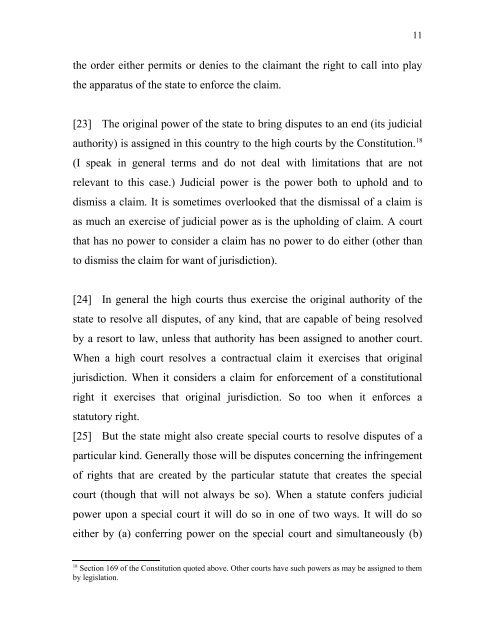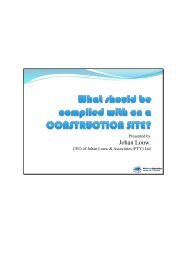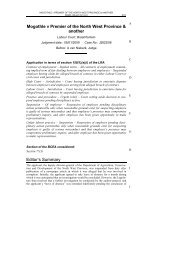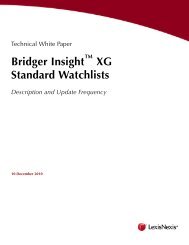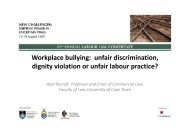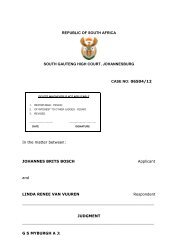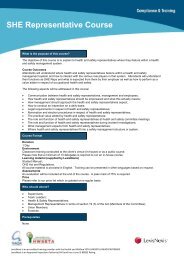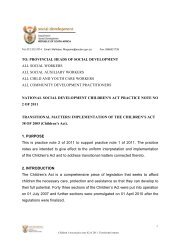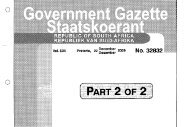Makhanya v University of Zululand - LexisNexis South Africa
Makhanya v University of Zululand - LexisNexis South Africa
Makhanya v University of Zululand - LexisNexis South Africa
Create successful ePaper yourself
Turn your PDF publications into a flip-book with our unique Google optimized e-Paper software.
11the order either permits or denies to the claimant the right to call into playthe apparatus <strong>of</strong> the state to enforce the claim.[23] The original power <strong>of</strong> the state to bring disputes to an end (its judicialauthority) is assigned in this country to the high courts by the Constitution. 18(I speak in general terms and do not deal with limitations that are notrelevant to this case.) Judicial power is the power both to uphold and todismiss a claim. It is sometimes overlooked that the dismissal <strong>of</strong> a claim isas much an exercise <strong>of</strong> judicial power as is the upholding <strong>of</strong> claim. A courtthat has no power to consider a claim has no power to do either (other thanto dismiss the claim for want <strong>of</strong> jurisdiction).[24] In general the high courts thus exercise the original authority <strong>of</strong> thestate to resolve all disputes, <strong>of</strong> any kind, that are capable <strong>of</strong> being resolvedby a resort to law, unless that authority has been assigned to another court.When a high court resolves a contractual claim it exercises that originaljurisdiction. When it considers a claim for enforcement <strong>of</strong> a constitutionalright it exercises that original jurisdiction. So too when it enforces astatutory right.[25] But the state might also create special courts to resolve disputes <strong>of</strong> aparticular kind. Generally those will be disputes concerning the infringement<strong>of</strong> rights that are created by the particular statute that creates the specialcourt (though that will not always be so). When a statute confers judicialpower upon a special court it will do so in one <strong>of</strong> two ways. It will do soeither by (a) conferring power on the special court and simultaneously (b)18Section 169 <strong>of</strong> the Constitution quoted above. Other courts have such powers as may be assigned to themby legislation.


